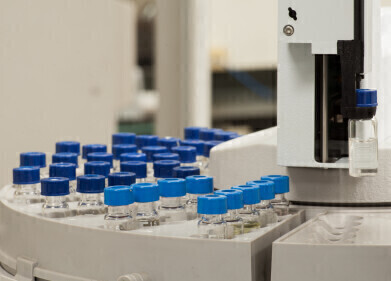-
 Olympic Games to be "riskiest yet" for athletes using illegal methods
Olympic Games to be "riskiest yet" for athletes using illegal methods
GC, MDGC
New drug detection method found
Sep 15 2011
Some sportsmen have been known to store their own blood and then inject it back into the body for a boost ahead of competing, as this process is difficult to detect through traditional anti-doping and drug detection technology.
This process is illegal as it provides athletes with more red blood cells, allowing more oxygen to circulate, thus increasing performance.
However, speaking at the British Science Festival, Professor David Cowan, director of the Drug Control Centre at King's College London and the scientist leading the anti-doping programme for the London Olympics, said that scientific breakthroughs have come some way to tackling the issue.
"A few years ago, scientists discovered there are processes going on in red cells [as they age outside the body]. We've been looking at the different RNA that's present and been able to identify those that are clearly changed in stored blood," Professor Cowan explained.
Cyclist Floyd Landis, who retired from the profession in January, recently claimed to have used blood transfusion to boost his performance.
Digital Edition
Chromatography Today - Buyers' Guide 2022
October 2023
In This Edition Modern & Practical Applications - Accelerating ADC Development with Mass Spectrometry - Implementing High-Resolution Ion Mobility into Peptide Mapping Workflows Chromatogr...
View all digital editions
Events
Jan 20 2025 Amsterdam, Netherlands
Feb 03 2025 Dubai, UAE
Feb 05 2025 Guangzhou, China
Mar 01 2025 Boston, MA, USA
Mar 04 2025 Berlin, Germany













